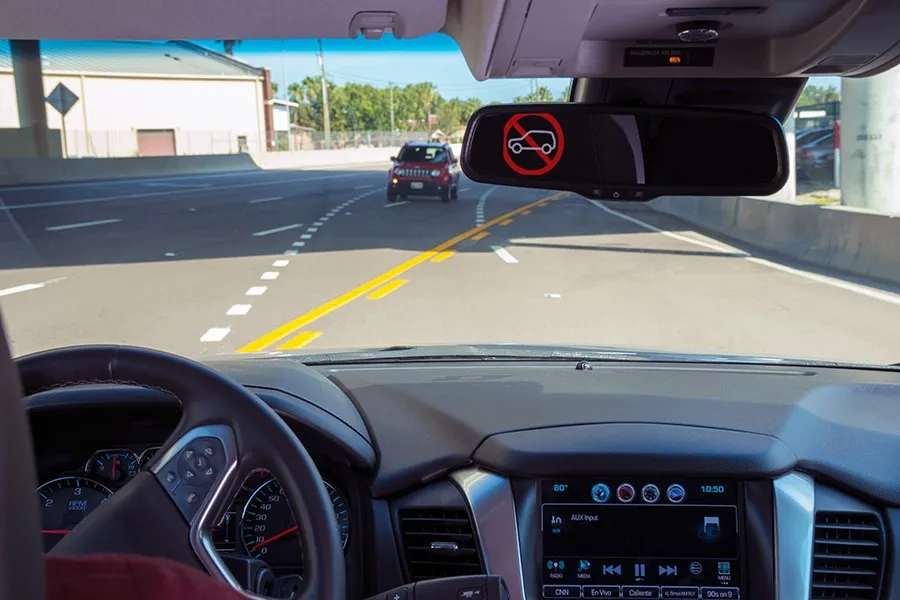The US Department of Transportation (USDOT) has released four new reports highlighting its latest research initiatives and findings related to intelligent transportation systems (ITS):
Connected Vehicle Pilot Deployment Program Phase 1: Participant Training and Stakeholder Education Plan - Tampa (THEA) (FHWA-JPO-16-318) is a high-level plan for recruiting and training automobile drivers, pedestrians, transit drivers, traffic management centre operators, and technicians participating in the Tampa Hillsbor
November 4, 2016
Read time: 2 mins
The 324 US Department of Transportation (USDOT) has released four new reports highlighting its latest research initiatives and findings related to intelligent transportation systems (ITS):
Connected Vehicle Pilot Deployment Program Phase 1: Participant Training and Stakeholder Education Plan - Tampa (THEA) (FHWA-JPO-16-318) is a high-level plan for recruiting and training automobile drivers, pedestrians, transit drivers, traffic management centre operators, and technicians participating in the Tampa Hillsborough Expressway Authority (THEA) Connected Vehicle Pilot Deployment.
Connected Vehicle Pilot Deployment Program Phase 1: Outreach Plan - Tampa (THEA) (FHWA-JPO-16-320) presents an outreach plan for the THEA Connected Vehicle Pilot Deployment
Connected Vehicle Impacts on Transportation Planning: Outreach to Planning Community (FHWA-JPO-16-413) presents outreach memos on 11 case studies analysing the impacts of connected and automated vehicles on transportation planning products. Each memo contains a summary of key messages for transportation planners and a high-level account of the most significant impacts of connected and automated vehicles on that particular transportation-planning product.
Connected Vehicle Impacts on Transportation Planning Primer (FHWA-JPO-16-420): The principal objective of this project, Connected Vehicle Impacts on Transportation Planning, is to assess how connected vehicles should be considered across the range of transportation planning processes and products developed by states, MPOs, and local agencies throughout the country. This report summarises the results and recommendations of the study and also provides planners with information on how to begin to address the impacts of connected and automated vehicle technology in their work.
Connected Vehicle Impacts on Transportation Planning - Desk Reference (FHWA-JPO-16-421) is a desk reference designed to help transportation professionals quickly understand and begin planning for the wide variety of impacts that connected and automated vehicle technology is expected to have on transportation planning products and processes.
Connected Vehicle Pilot Deployment Program Phase 1: Participant Training and Stakeholder Education Plan - Tampa (THEA) (FHWA-JPO-16-318) is a high-level plan for recruiting and training automobile drivers, pedestrians, transit drivers, traffic management centre operators, and technicians participating in the Tampa Hillsborough Expressway Authority (THEA) Connected Vehicle Pilot Deployment.
Connected Vehicle Pilot Deployment Program Phase 1: Outreach Plan - Tampa (THEA) (FHWA-JPO-16-320) presents an outreach plan for the THEA Connected Vehicle Pilot Deployment
Connected Vehicle Impacts on Transportation Planning: Outreach to Planning Community (FHWA-JPO-16-413) presents outreach memos on 11 case studies analysing the impacts of connected and automated vehicles on transportation planning products. Each memo contains a summary of key messages for transportation planners and a high-level account of the most significant impacts of connected and automated vehicles on that particular transportation-planning product.
Connected Vehicle Impacts on Transportation Planning Primer (FHWA-JPO-16-420): The principal objective of this project, Connected Vehicle Impacts on Transportation Planning, is to assess how connected vehicles should be considered across the range of transportation planning processes and products developed by states, MPOs, and local agencies throughout the country. This report summarises the results and recommendations of the study and also provides planners with information on how to begin to address the impacts of connected and automated vehicle technology in their work.
Connected Vehicle Impacts on Transportation Planning - Desk Reference (FHWA-JPO-16-421) is a desk reference designed to help transportation professionals quickly understand and begin planning for the wide variety of impacts that connected and automated vehicle technology is expected to have on transportation planning products and processes.









